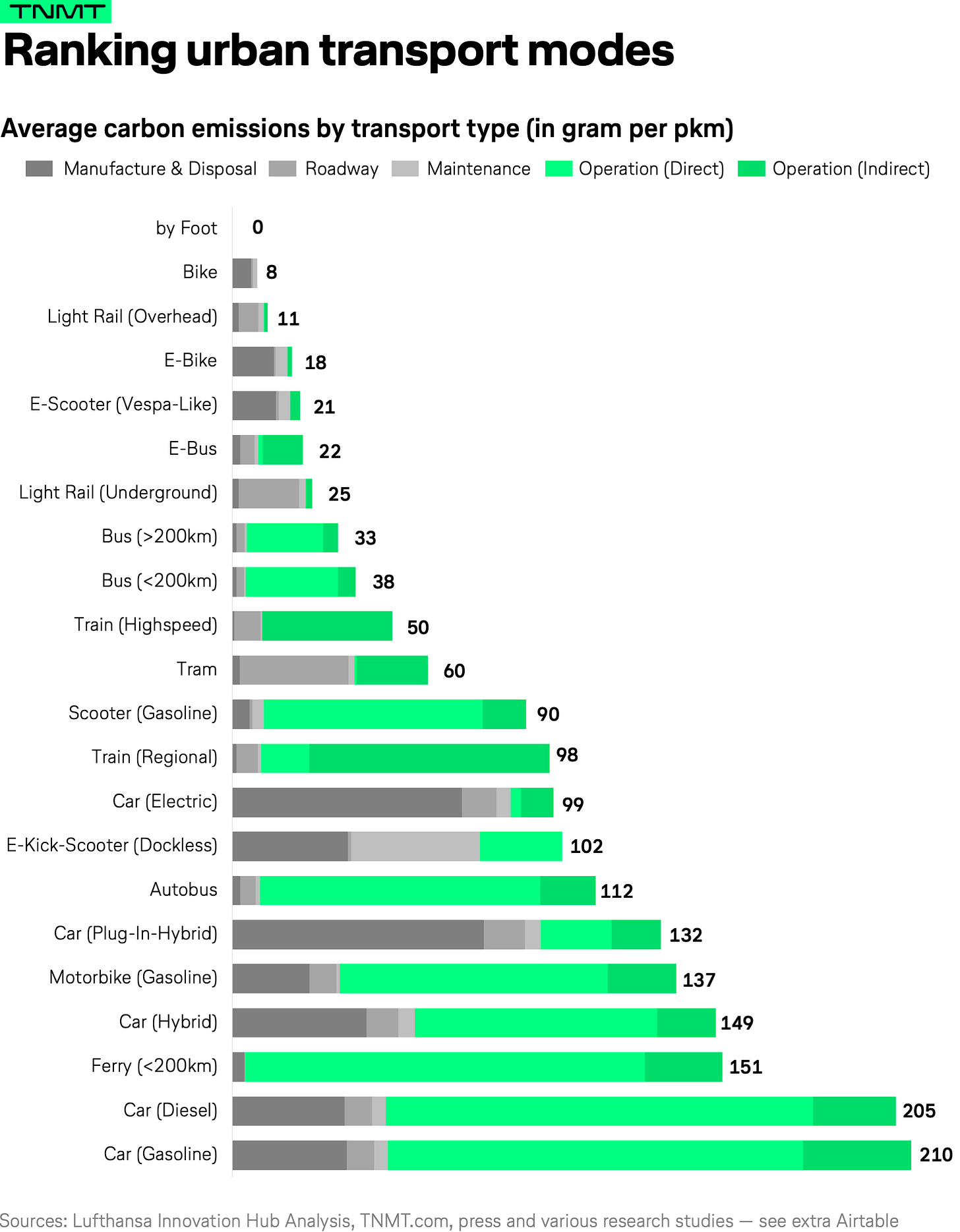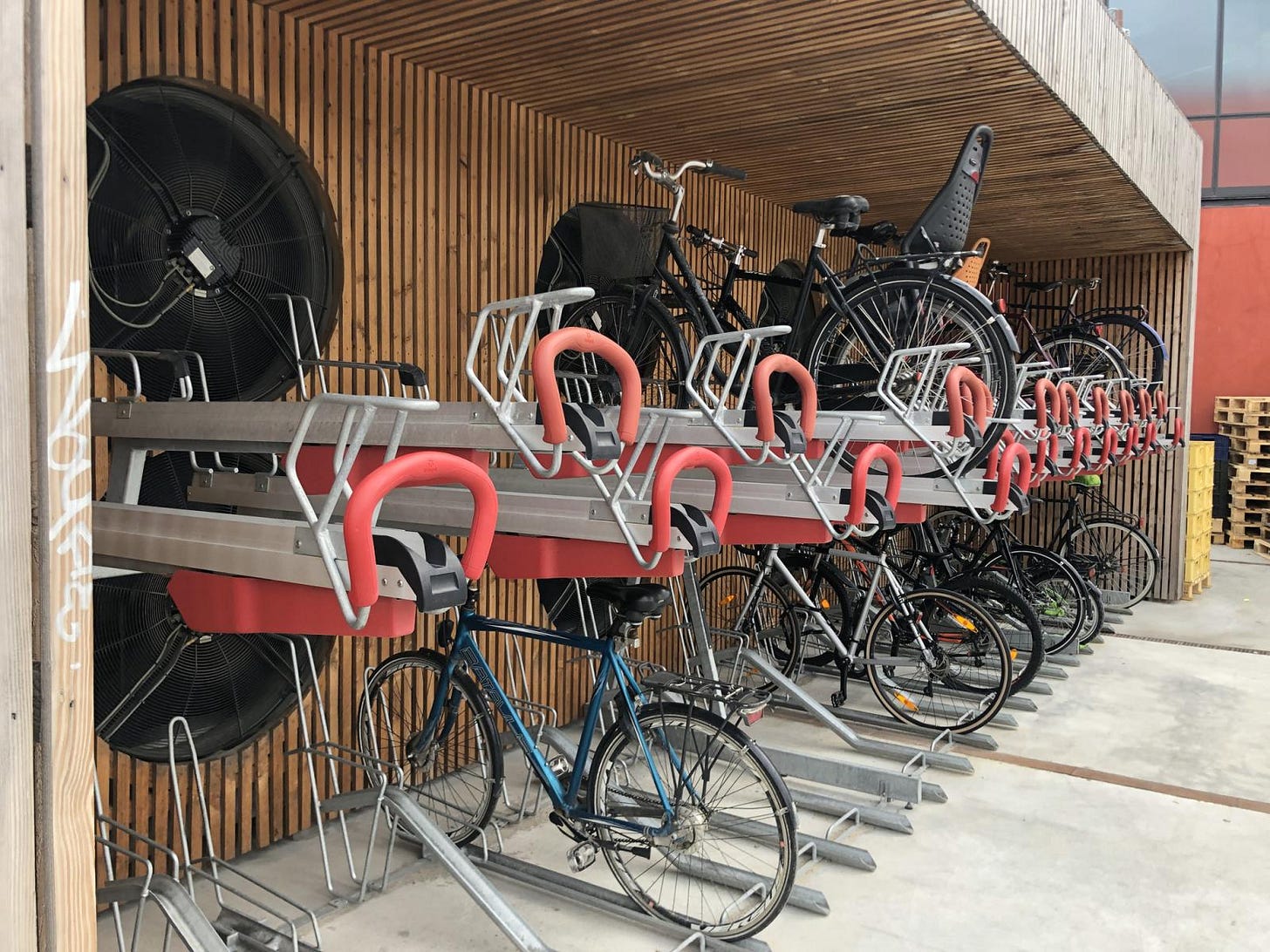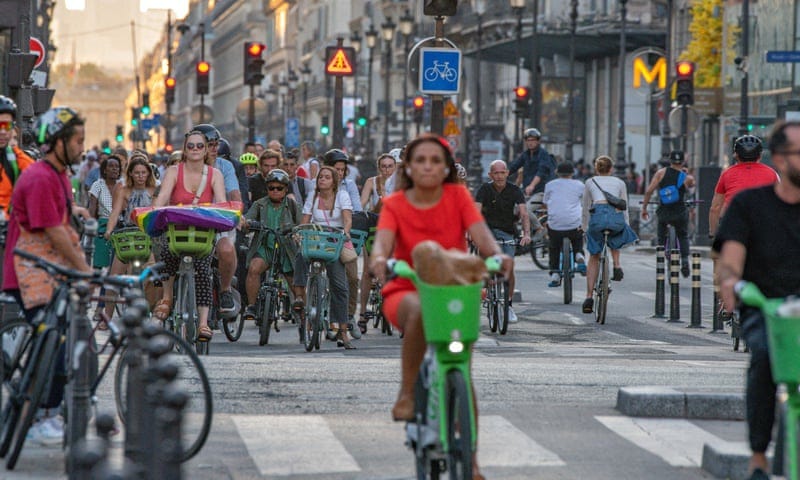Bird Goes Bankrupt: What Company Will Blink Next?
Plus an IPO for India's Ola Electric, universal bike parking mandates for EU countries, and more.
Welcome to the Micromobility Newsletter, your weekly digest of important events and industry news in the world of personal transportation.
Before we begin, a quick reminder that tickets to Micromobility Europe—our massive industry confab, happening in Amsterdam on June 5-6—are 85% off during the holidays. Book now and pay only €145/ticket.
Shared micromobility provider Bird, one of the fastest startups to reach a billion-dollar valuation, has filed for bankruptcy. In a special episode of the Ride On! podcast, James Gross and Prabin Joel Jones delve into the financial challenges and strategic mis-steps of the company’s meteoric rise and fall.
Just how much does riding your ebike help offset climate change? This informative infographic from Lufthansa Innovation Hub Analysis ranks the emissions of various urban transport modes, including manufacturing and required infrastructure. It paints a clear picture of the benefits of micromobility combined with public transit.
India’s Ola Electric will sell shares in an initial public offering, hoping to raise $661.8M USD. This comes on the heels of the $384M USD the Bengaluru-based startup received from Temasek and the State Bank of India in October.
San Francisco adopted “Vision Zero” way back in 2014, with a plan to completely eliminate traffic fatalities. However, nothing has changed after almost a decade and millions of dollars spent; Where did they go wrong? Says Christopher White of the SF Bicycle Coalition: “It’s not a failure of Vision Zero, it’s a failure of political will.”
Lack of parking infrastructure prevents many apartment dwellers from even considering owning a bicycle, but that is changing soon (at least in Europe). Expected to take effect in 2024, a new directive from the EU requires bike parking for virtually all types of buildings, and includes provisions for ebike charging.
That directive is timely for companies like Standab. The Swedish startup specializes in micromobility infrastructure, and recently announced parking bays with integrated charging technology for ebikes and scooters.
Another decision by the European Union will reclassify an estimated 5.5M gig workers - primarily food delivery and couriers - as employees. It’s unclear how delivery platforms will react, though it’s worth noting that a similar law passed in Spain resulted in reduced operations, with Deliveroo pulling out of the country completely.
The advent of personal automobiles radically changed the landscape of cities around the world, but more and more European cities are now fighting back. Common traffic reduction strategies include congestion charges, parking restrictions, and limited traffic zones.
Battery swapping tech is growing rapidly and - as usual - Gogoro is leading the charge. The company is teaming up with Uber Eats to provide electric mopeds for delivery riders in Taiwan.
Battery swapping operations also continue to grow in India with 200 swapping stations coming from local company Motovolt Mobility, working in partnership with German battery-swap startup Swobbee.
The Land Transport Authority launched a pilot program to simplify navigation for pedestrians and cyclists in Singapore. Designed based on active engagement with residents, the network of navigation signage could become standard guidance from the LTA if successful.
What’s next for VanMoof? Now under new leadership, the iconic electric bike manufacturer has big post-bankruptcy plans, starting with supplying replacement parts to retailers and then resuming ebike sales.
While electric bike adoption continues to be most widespread in Europe and Asia, the U.S. market is finally seeing significant growth. Sales have continued to grow even after the pandemic boom, with 1.1M e-bikes sold in 2022, a 400% increase from 2019.






